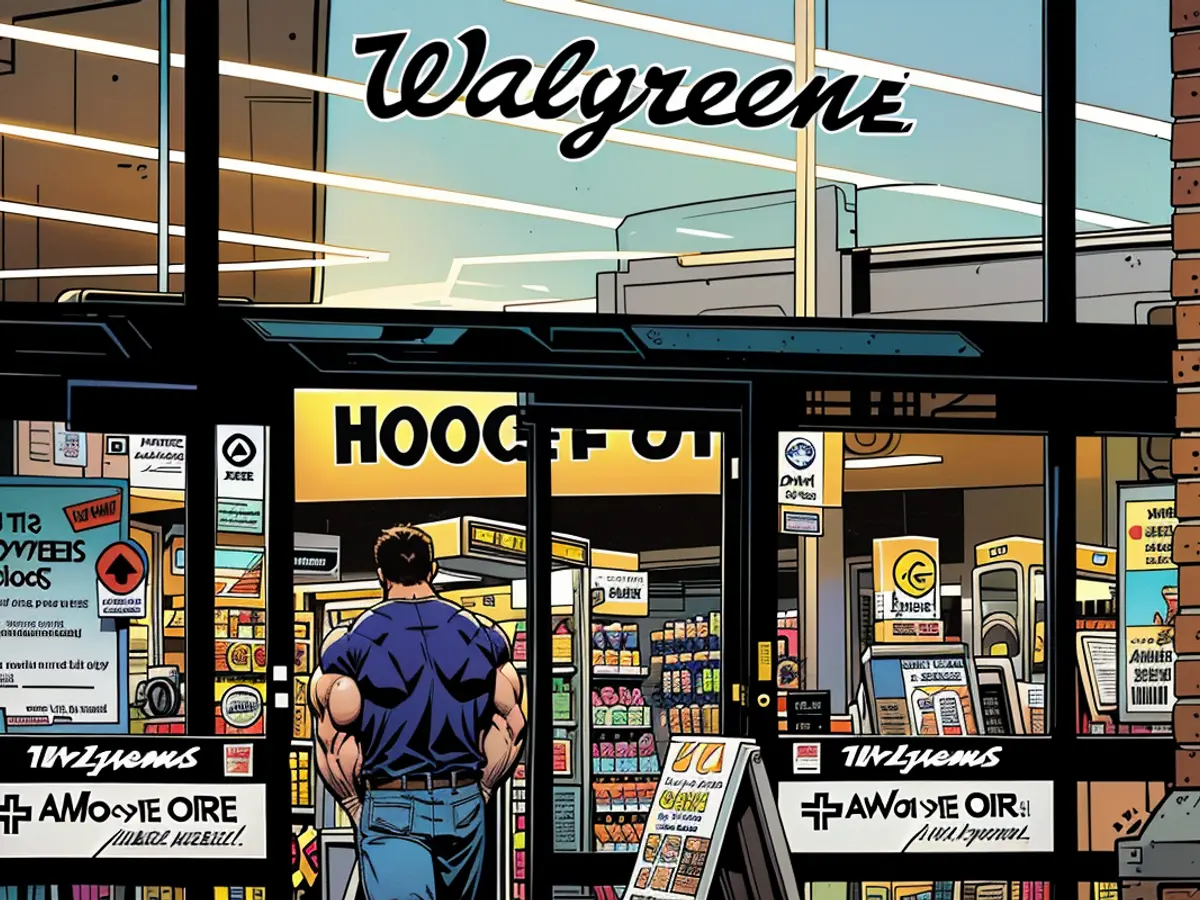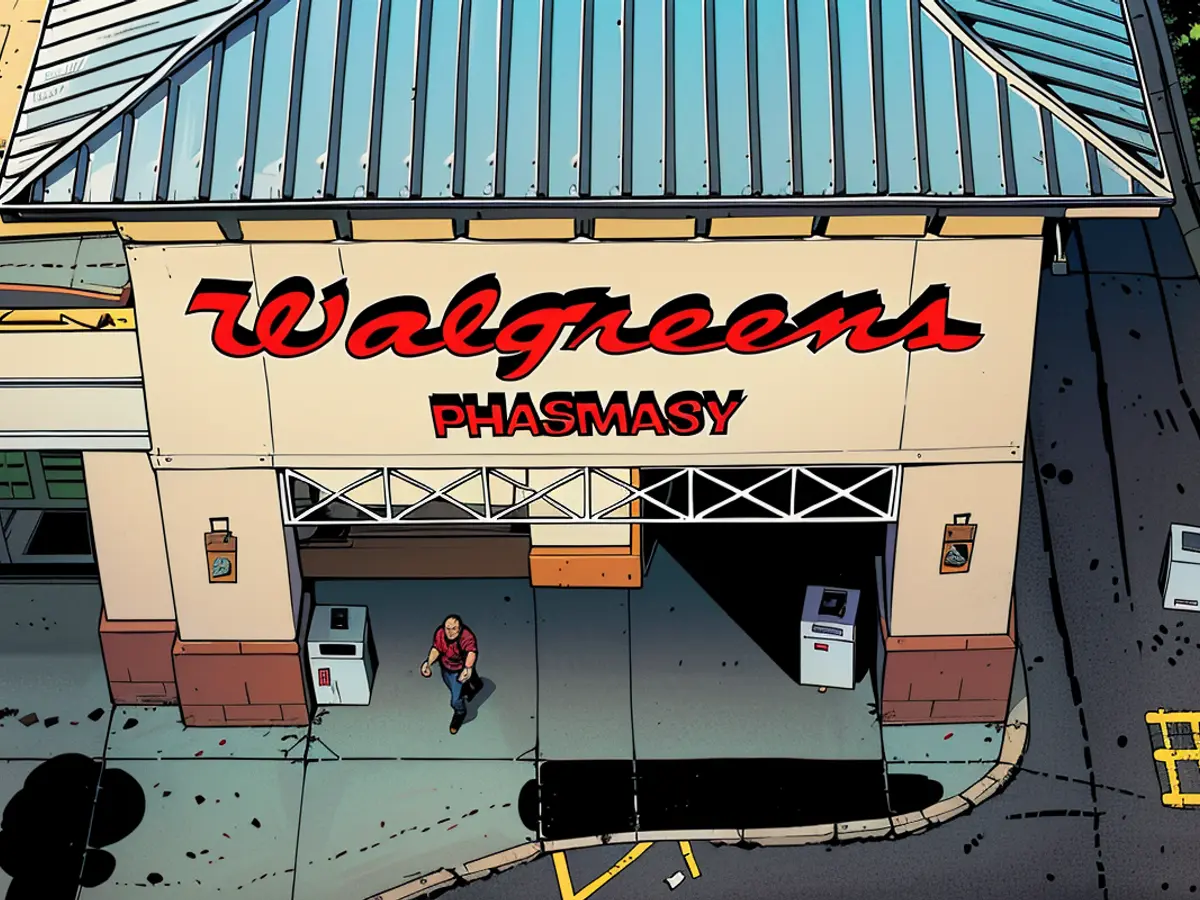Reason behind the impending shutdown of your pharmacy
What's going on with the pharmacies in America?
During the 1990s and 2000s, chains like Walgreens expanded excessively to beat competition and attract more customers. However, these pharmacies are now closing due to altered consumer preferences, fierce competition, and changes in the pharmaceutical industry.
Reportedly, around 25% of Walgreens' stores aren't profitable, as stated by CEO Tim Wentworth in a conversation with the Wall Street Journal. The company is planning to shut down stores that are located close to each other or struggle with theft control.
The retail sector has reported an increase in shoplifting since the pandemic. As a result, some stores have locked up items or temporarily closed high-theft stores. Nonetheless, shoplifting isn't solely responsible for Walgreens' issues, and the company conceded last year that its concern over the potential impact of shoplifting could have been overblown.
Simultaneously, increased competition and ill-fated schemes, such as buying primary care providers, have persistent ramifications on drug stores.
"The current pharmacy model is unsustainable," Wentworth conceded during the interview.
CVS, the leading US drugstore chain, closed 244 stores between 2018 and 2020. In 2021, it announced plans to shut down another 900 stores. Earlier this month, CVS announced it would cut around 2,900 corporate jobs.
Additionally, Rite Aid filed for bankruptcy last year, promising to shut down up to 500 stores.
Market Trends
Analysts suggest that pharmacies are struggling due to reduced reimbursement rates for prescription drugs. Prescription drug sales account for the majority of drugstore revenue, but their profits from this sector have dipped significantly as reimbursement rates fall and expenses rise.
The prices of drugs and pharmacy payments are primarily determined by entities known as Pharmacy Benefit Managers (PBMs), which engage in rebate negotiations with drug manufacturers for insurers. PBMs have been accused of reducing reimbursement rates to pump up their own profits, Elizabeth Anderson, an analyst at Evercore IRI, previously claimed.
The pharmaceutical industry accuses PBMs of having excessive control and squeezing pharmacies. While PBMs contend that they help curb drug prices by negotiating with drug manufacturers.

"If reimbursement rates drop, and pharmacies can't compensate through additional growth, it negatively impacts their profitability," Anderson said.
Meanwhile, the non-prescription parts of the drugstore, such as snacks and household items, are also faltering. The front end is less profitable due to the rising popularity of online shopping from retail giants like Amazon and giant-box chains such as Walmart and Costco. Dollar General's expansion has also adversely affected drugstore chains in rural areas.
"The front end is facing the same challenges as other retailers," Anderson said.
To lure customers, drugstores like Walgreens and CVS have delved into primary care, installing doctors' offices in hundreds of locations. For instance, Walgreens invested $5.2 billion in VillageMD, a primary care network, in 2021.
However, VillageMD has not been financially beneficial for Walgreens, and the chain has initiated cost-cutting measures. It has shut down VillageMD locations and announced, over the summer, its intention to divide from the company.
Aiding the company or harming the clientele?
Walgreens' impending closures might boost the company financially, but they may negatively impact healthcare access.
When pharmacies shut down, some patients must travel longer distances to acquire their essential medications. Studies indicate that pharmacy closures result in health risks, such as older adults failing to take their medication.
The loss of a retail pharmacy can be particularly detrimental, particularly for low-income households.
Approximately one out of every eight pharmacies closed between 2009 and 2015, predominantly impacting independent pharmacies and low-income areas, according to a study published in the Journal of the American Medical Association.
The study found that pharmacies at a higher risk of closure are those with a substantial customer base on public insurance, which have lower reimbursement rates than private plans, as well as independent pharmacies.

Despite the closure of underperforming stores, Walgreens continues to explore business opportunities, such as investing in primary care providers like VillageMD. However, the financial success of these ventures is yet to be seen, as evidenced by Walgreens' decision to divest from VillageMD.
The business landscape for pharmacies in America is challenging, with reduced reimbursement rates for prescription drugs being a significant contributing factor. These lower reimbursement rates, largely determined by Pharmacy Benefit Managers (PBMs), make it difficult for pharmacies to maintain profitability without compensating through additional growth.








